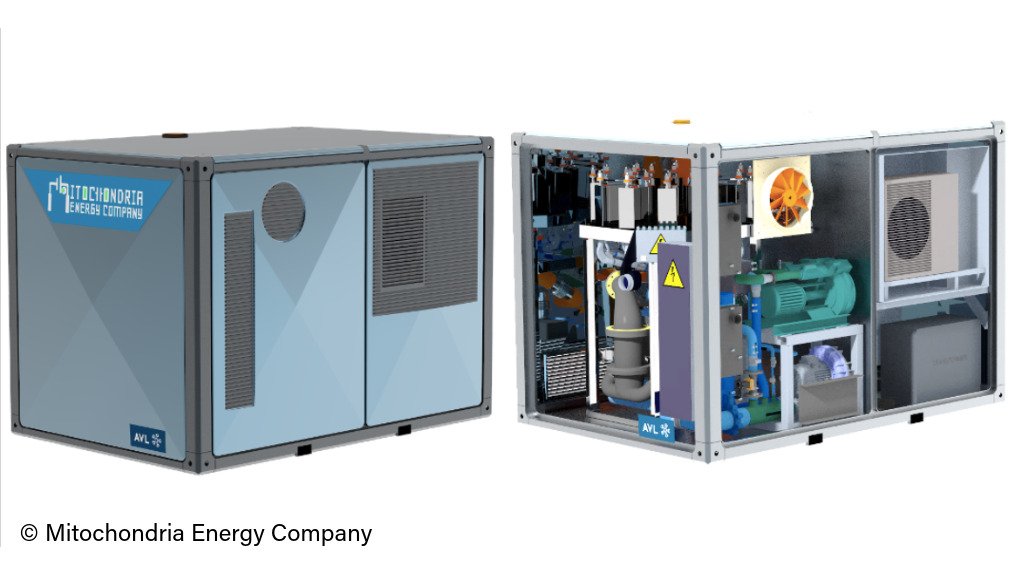Local supply chain challenges pose significant threat to localised manufacturing
If hydrogen technology developer Mitochondria Energy CEO Mashudu Ramano had known beforehand how difficult it would be to find local suppliers for hydrogen fuel cell and electrolyser parts, he would never have entered the hydrogen market at all, he revealed on October 23.
Speaking on the second day of the 2024 Manufacturing Indaba, in Sandton, he explained how his company was planning on manufacturing electrolysers in South Africa in Madibeng, along with fuel cells in the Vaal Special Economic Zone.
However, he said the biggest hurdle to achieving this lay in the supply chain.
“Our product is made up of 450 parts. Now to get 150 suppliers of these 450 parts – and we wanted to have them be from South Africa – is very, very difficult. If I had known before making the decision to get into hydrogen that I would have a challenge in this, I would not have entered that market because it's so difficult. You have to negotiate with so many different players. But we have managed,” he said.
He said this was indicative of the overall challenges facing local manufacturing, not only in South Africa but in Africa as a whole.
Steel and Engineering Industries Federation of Southern Africa COO Tafadzwa Chibanguza echoed these sentiments, adding that a key component of Africa’s rise as a global supply chain player was the development of a strong supplier base.
“Among the different regions within Africa, there’s a massive market in that area, and there are supply chains [that can be taken] advantage of there. And then there’s global value chains in the traditional sense,” he said.
Chibanguza also highlighted the impact of recent global events on supply chain dynamics.
“We are living in an interesting time where we’ve had factors such as Covid-19, which reshaped the thinking of global supply chains. The geopolitical tensions also have considerations around supply chains - the emergence of new blocks.
“You can call the African Free Trade Area one block, you can call Brics another one and many others. There are technology advancements and climate change considerations around transporting goods. All these have fundamental implications for supply chains,” he said.
He stressed the importance of ensuring that Africa was not the weakest link in these supply chains, noting that the continent needed to strengthen its capabilities to remain competitive.
International Finance Corporation regional industry manager for manufacturing in Eastern and Southern Africa Ayobambo Oladapo Kunle Salami pointed out the challenge of linking Africa’s industrialisation to global supply chains.
“One of the key challenges that we’ve been facing is, how do we better link the industrialisation of Africa to the global supply chains, because that’s actually how many of the other economies in Central and East Asia have evolved. So it’s Africa’s time,” he said.
Salami also highlighted the imbalance in Africa’s trade figures, noting that Africa exported about $800-billion of goods a year, of which 85% were raw materials and only 15% were manufactured products.
“Seventy per cent of what’s traded internationally is manufactured products. So you begin to see what the issue is,” he explained.
He further underscored the need for upscaling Africa’s manufacturing capacity and emphasised the importance of export-focused manufacturing.
“We need to move up the value chain. It can’t just be raw materials. Africa has 50% of the world’s cobalt and 90% of the world’s platinum. The raw materials are here, so you need to industrialise,” he said.
Salami also raised concerns about the disconnect between policy and execution.
“A lot of the policy frameworks and the regulations you need for us to do trade already exist. I don’t think there’s a single trade agreement or a trade framework in Africa that doesn’t read well. But what’s happening on the ground? How do we translate policy into reality?” he asked.
He noted that, unfortunately, businesses faced different experiences at borders compared with what the policies were meant to achieve, and called for mechanisms to provide policymakers with feedback on what was and was not working in terms of cross-border trade and integration, both within Africa and internationally.
Article Enquiry
Email Article
Save Article
Feedback
To advertise email advertising@creamermedia.co.za or click here
Press Office
Announcements
What's On
Subscribe to improve your user experience...
Option 1 (equivalent of R125 a month):
Receive a weekly copy of Creamer Media's Engineering News & Mining Weekly magazine
(print copy for those in South Africa and e-magazine for those outside of South Africa)
Receive daily email newsletters
Access to full search results
Access archive of magazine back copies
Access to Projects in Progress
Access to ONE Research Report of your choice in PDF format
Option 2 (equivalent of R375 a month):
All benefits from Option 1
PLUS
Access to Creamer Media's Research Channel Africa for ALL Research Reports, in PDF format, on various industrial and mining sectors
including Electricity; Water; Energy Transition; Hydrogen; Roads, Rail and Ports; Coal; Gold; Platinum; Battery Metals; etc.
Already a subscriber?
Forgotten your password?
Receive weekly copy of Creamer Media's Engineering News & Mining Weekly magazine (print copy for those in South Africa and e-magazine for those outside of South Africa)
➕
Recieve daily email newsletters
➕
Access to full search results
➕
Access archive of magazine back copies
➕
Access to Projects in Progress
➕
Access to ONE Research Report of your choice in PDF format
RESEARCH CHANNEL AFRICA
R4500 (equivalent of R375 a month)
SUBSCRIBEAll benefits from Option 1
➕
Access to Creamer Media's Research Channel Africa for ALL Research Reports on various industrial and mining sectors, in PDF format, including on:
Electricity
➕
Water
➕
Energy Transition
➕
Hydrogen
➕
Roads, Rail and Ports
➕
Coal
➕
Gold
➕
Platinum
➕
Battery Metals
➕
etc.
Receive all benefits from Option 1 or Option 2 delivered to numerous people at your company
➕
Multiple User names and Passwords for simultaneous log-ins
➕
Intranet integration access to all in your organisation



















